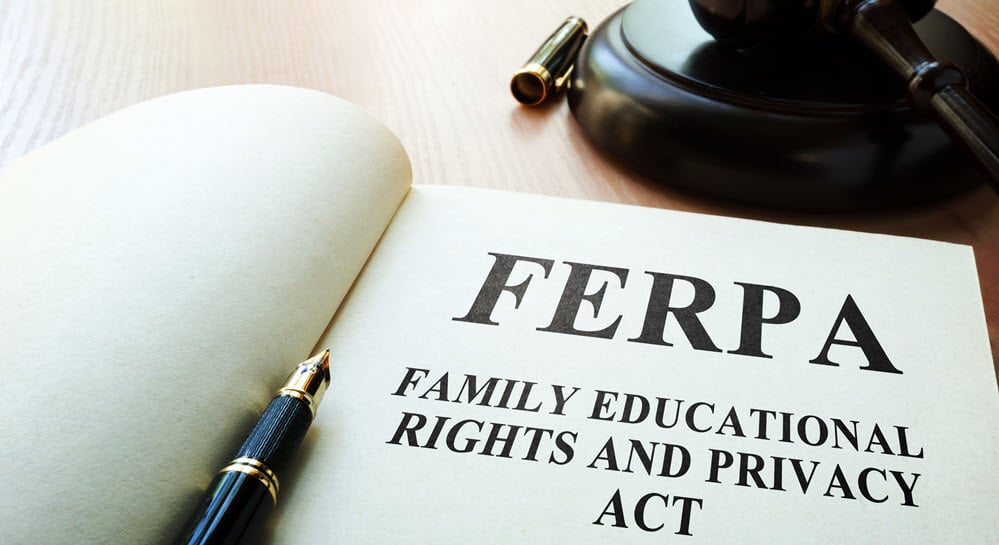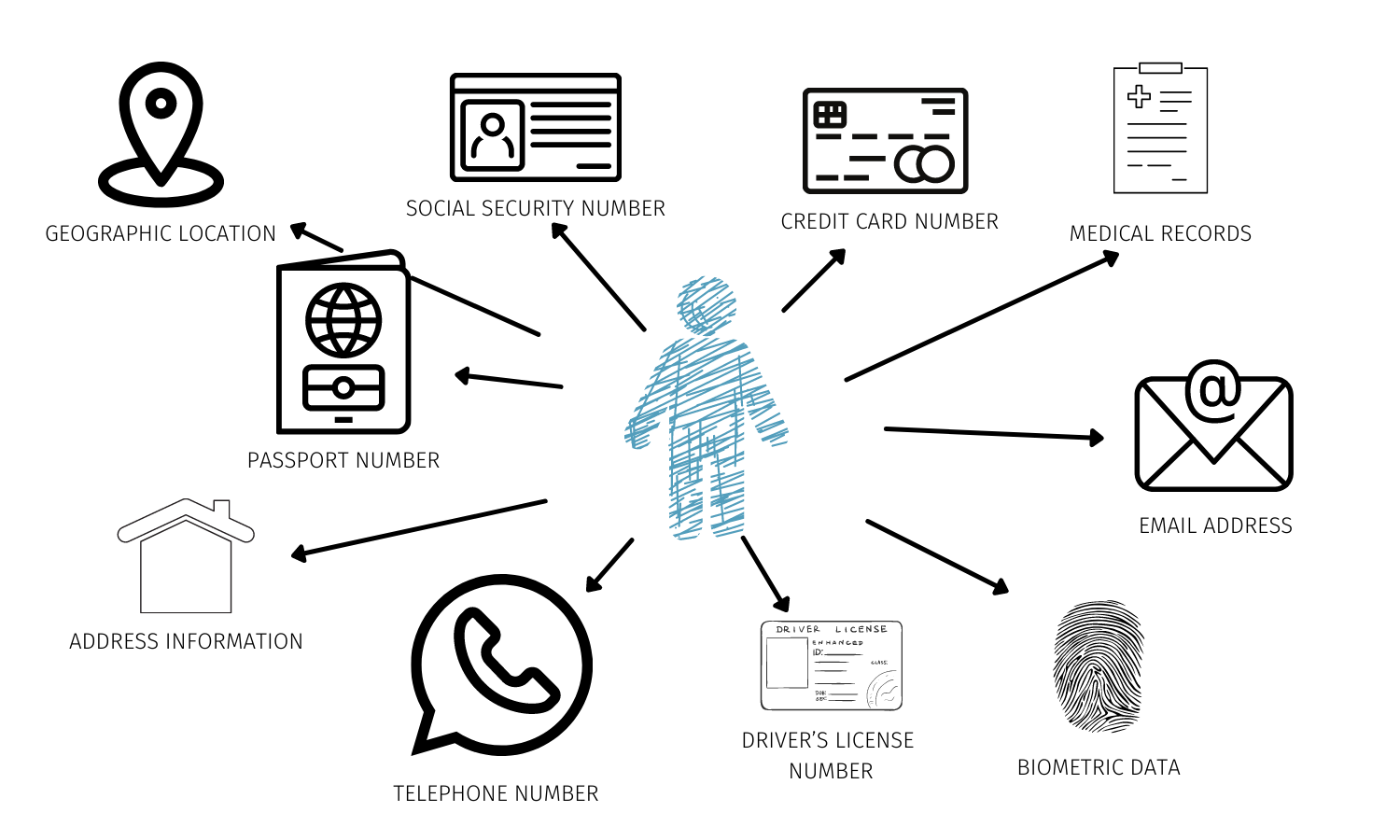Navigating Compliance with Student Data Privacy Laws in Education
In today’s classrooms, so much of what we do is powered by technology—online grades, digital assignments, even parent communication apps. With all...
You must be logged in to the LATechNet portal to view additional resources.
4 min read
 Aria - LATechNet Team
:
Jul 14, 2025 6:03:28 AM
Aria - LATechNet Team
:
Jul 14, 2025 6:03:28 AM

If you're an educator or school administrator, you've probably heard about FERPA, the Family Educational Rights and Privacy Act. Simply put, FERPA is a federal law that protects the privacy of student education records. It ensures that students and their families have control over who can access personal information, keeping sensitive data safe and secure.
Safeguarding student data isn't just important—it's essential. Schools handle a lot of personal information, from grades and attendance records to addresses and health details. Protecting this data builds trust between schools and families, showing parents and students that their privacy matters.
But what happens if schools don't follow FERPA rules? Non-compliance can lead to serious consequences. Schools might face legal challenges, hefty fines, or even damage to their reputation. Staying compliant helps schools avoid these pitfalls, ensuring a safe and trustworthy learning environment for everyone involved.
Overview of FERPA
The Family Educational Rights and Privacy Act (FERPA) is a federal law that helps protect the privacy of student education records. Simply put, FERPA ensures that sensitive student information stays confidential and gives students and parents clear rights when it comes to accessing and managing educational data. Under FERPA, parents and eligible students (typically those over 18) can review their records, request corrections, and control who else gets to see them. Educational records include grades, attendance, discipline reports, and even personally identifiable information like addresses or social security numbers.
Additional Relevant Laws
Besides FERPA, schools also need to know about other privacy regulations. One important law is COPPA—the Children's Online Privacy Protection Act—which specifically protects kids under 13 when they're online, limiting how websites and apps can collect and use their information. Additionally, there are state-specific laws that vary widely. For example, California provides its own detailed data privacy guidelines that schools must follow carefully (cde.ca.gov). Staying informed about these state and federal rules keeps educators one step ahead in safeguarding student privacy.
Developing Comprehensive Policies and Procedures
One of the first steps towards FERPA compliance is creating clear and thorough data privacy protocols. Schools should clearly outline who can access student data, how it will be used, and under what circumstances it may be disclosed. Internal policies should also clearly define roles and responsibilities related to student data management. Regularly reviewing these policies is equally important, ensuring they stay current with evolving privacy laws and technology trends (floriolaw.com).
Implementing Effective Data Security Measures
A solid data security plan includes robust protective software—think firewalls, antivirus programs, and anti-malware solutions. Safe storage practices, like encryption, keep student information secure and unreadable to unauthorized individuals. Additionally, backing up data regularly and having disaster recovery plans ready help schools bounce back quickly if something unexpected happens (upguard.com).
Training and Awareness Programs
Compliance isn't just about technology; it also involves people. Educators and staff should attend regular FERPA training sessions to stay informed about their obligations. Schools should emphasize the importance of handling sensitive student data responsibly and foster a culture where everyone values privacy and security (nsdpa.com). After all, compliance is most effective when everyone in the school community understands and actively participates in protecting student data.
Choosing the right educational technology tools can feel overwhelming, but focusing on privacy can make the selection process smoother. Start by setting clear criteria to evaluate which EdTech solutions safeguard student data effectively. Helpful resources, like the guidelines from Student Privacy Compass, offer tips on assessing compliance. Always review vendor privacy policies carefully, examining how they handle, store, and protect student information. It's crucial not just for trust but to ensure your school stays aligned with laws like FERPA and COPPA.
Transparency is equally important. Clearly informing parents and students about data collection and usage practices helps build trust. Make privacy policies readily available and straightforward to understand. Additionally, establishing accessible communication channels ensures that families can comfortably voice any privacy-related questions or concerns, keeping everyone informed and your school community comfortable with technology use.
Staying compliant with FERPA and student privacy laws isn't a one-time task—it's an ongoing journey. Conducting regular internal audits can help schools spot issues early and fix them before they become serious problems. Think of audits like regular health check-ups: they help your district stay healthy and compliant by identifying gaps where student data might be at risk.
It's also helpful to have someone in charge of compliance. Appointing a designated FERPA Compliance Officer ensures there's always someone keeping an eye on privacy policies, training staff, and answering questions as they come up. This officer is like your school's privacy guardian, making sure everything stays on track (floriolaw.com).
And when breaches happen, responding quickly matters. Your school should have clear steps in place to investigate incidents and put corrective measures into action right away, keeping students safe and your community informed.
Keeping up with FERPA and student data privacy laws can feel overwhelming, but LATechNet offers specialized IT services designed just for educational institutions like yours. Their friendly team helps schools build strong cybersecurity defenses, including firewalls, encryption tools, and secure backups, making sure student information stays safe from cyber threats.
LATechNet also provides customized training programs for your staff, teaching them all about FERPA compliance and data privacy in an engaging, easy-to-understand way. Plus, they offer expert advice to help you choose educational technology solutions that meet all regulatory standards.
With comprehensive audits and risk assessments, LATechNet proactively spots potential vulnerabilities before they become a problem. And if an issue ever arises, their responsive team is ready with ongoing support and rapid response, ensuring minimal disruption and maximum protection for your students' important data.
Keeping student data safe and staying compliant with FERPA isn't just a legal requirement—it's a critical part of building trust within your school community. Proactively managing student privacy helps educators confidently embrace technology without risking student safety or privacy. By focusing on responsible data management, schools can avoid potential pitfalls and create secure, nurturing environments where students thrive.
Partnering with specialized professional IT services, like LATechNet, can make all the difference. These experts understand the unique challenges educators face and provide valuable guidance, effective strategies, and reliable support to ensure your school remains compliant and secure. This teamwork enables educators to focus on teaching, knowing student data is in trustworthy hands. Ultimately, investing in proactive FERPA compliance and responsible data management is not merely beneficial—it's essential for protecting students, schools, and communities alike.

In today’s classrooms, so much of what we do is powered by technology—online grades, digital assignments, even parent communication apps. With all...

This article outlines best practices for handling student Personally Identifiable Information (PII), emphasizing the importance of protecting student...

Schools handle sensitive student health data, which requires adherence to HIPAA and FERPA regulations for proper privacy protection. FERPA typically...